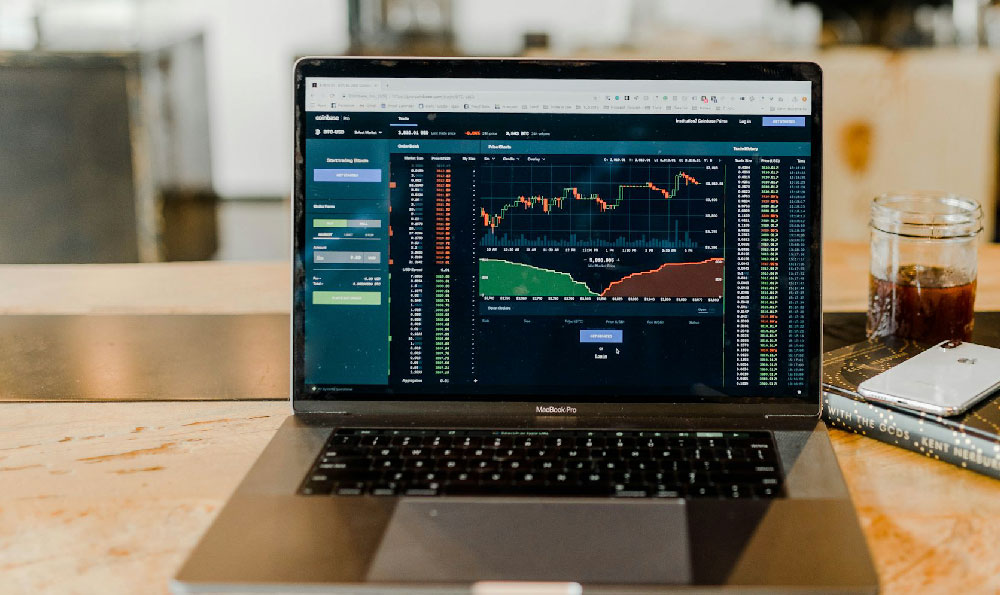how much can you earn from bitcoin mining
Bitcoin mining profitability is a multifaceted topic that intertwines technological innovation, operational costs, and market dynamics. As the appeal of cryptocurrencies grows, many individuals and ventures are drawn to the prospect of mining Bitcoin, aiming to harness its potential for financial gain. However, the earnings generated from this activity are not uniform; they depend on a variety of factors. While some miners may achieve substantial returns, others might face challenges that offset their profits.
One of the primary determinants of earnings in Bitcoin mining is the efficiency of the mining hardware. The mining process requires powerful computers equipped with specialized chips, such as Application-Specific Integrated Circuits (ASICs). These machines are designed to solve the complex mathematical problems necessary for validating transactions and adding new blocks to the blockchain. The performance of ASICs directly affects the speed at which miners can process transactions, which in turn influences their ability to earn Bitcoin. Modern ASICs are capable of performing trillions of calculations per second, making them significantly more efficient than traditional CPUs or GPUs. However, advancements in technology often render older models obsolete, leading to a continuous cycle of innovation and investment in new hardware. This technological evolution is crucial for maintaining competitiveness in a rapidly changing market, as older equipment may struggle to keep up with the increasing difficulty of mining operations.
Another crucial factor influencing Bitcoin mining earnings is the cost of electricity. Mining operations consume a considerable amount of energy, and the price of electricity can fluctuate based on geographic location and local energy sources. In regions where the cost of electricity is relatively low, miners can reduce their operational expenses and potentially increase their profits. Conversely, in areas with high energy costs, the profitability of mining may be significantly diminished. This dynamic highlights the importance of selecting an optimal location for mining activities, whether through centralized data centers or distributed setups. While some miners may benefit from economies of scale, others might need to invest in energy-efficient solutions to remain viable.

The competitiveness of the mining network also plays a pivotal role in determining profitability. Bitcoin’s mining difficulty increases over time as more miners join the network, leading to a higher computational requirement for validating transactions. This makes it increasingly challenging for individual miners to remain profitable as the network becomes more saturated. The rise in difficulty is a natural consequence of the Proof of Work mechanism, which was introduced to ensure the security and decentralization of the Bitcoin blockchain. As the network grows, the cost of maintaining a competitive edge in the mining landscape rises, prompting miners to invest in more advanced technology or explore alternative revenue streams.
Market dynamics, such as Bitcoin’s price and the demand for mining hardware, further shape the profitability of Bitcoin mining. When the price of Bitcoin rises, the value of the mined coins increases, potentially leading to higher earnings. Conversely, a decline in Bitcoin’s value may reduce the overall profitability of mining operations. Additionally, the demand for mining hardware can lead to fluctuations in their prices, affecting the cost of entry for new miners. These market factors create a volatile environment, requiring miners to adapt to changing conditions and adjust their strategies accordingly.
The growing interest in Bitcoin mining has also led to the emergence of cloud mining services, which allow individuals to invest in mining infrastructure without the need for physical setups. These services offer a range of options, from renting mining power to purchasing mining rights, enabling users to participate in Bitcoin mining with varying levels of involvement. The earnings from cloud mining can depend on the performance of the underlying infrastructure, the fees charged by the service provider, and the overall market conditions. While cloud mining may provide an accessible entry point for beginners, it is essential to thoroughly research and select reputable providers to ensure fair returns.
The profitability of Bitcoin mining is further influenced by the regulatory environment. Government policies and laws can impact the legality of mining operations, the availability of resources, and the overall market dynamics. In some countries, mining may be restricted or regulated, affecting the ability of miners to operate freely. Conversely, in regions with supportive policies, miners may have greater opportunities to scale their operations and maximize their earnings. Understanding and navigating the regulatory landscape is critical for sustainable success in Bitcoin mining.
In addition to the technical and economic aspects, the security of the mining process and the reliability of the network are important considerations. The decentralized nature of the Bitcoin blockchain ensures that miners are not dependent on any single entity, but the security of the network can be affected by the concentration of mining power. The emergence of large mining farms and the centralization of computing resources may pose risks to the network’s integrity, leading to potential vulnerabilities. Miners must prioritize security measures, such as using reliable software and maintaining robust hardware, to protect their investments and ensure the stability of the mining process.
The future of Bitcoin mining is shaped by technological advancements and shifting market trends. The development of more efficient algorithms and hardware can enhance the profitability of mining operations, while changes in energy sources and regulatory policies may redefine the landscape altogether. As the demand for cryptocurrencies continues to grow, the role of Bitcoin mining in the broader financial ecosystem is likely to evolve, presenting both opportunities and challenges for miners.
In conclusion, the potential earnings from Bitcoin mining are influenced by a combination of factors, including hardware efficiency, energy costs, network difficulty, market dynamics, and regulatory environments. While the possibility of achieving substantial profits exists, it is essential to consider the various risks and challenges that may affect the returns. By understanding these elements, miners can make informed decisions and navigate the complexities of the cryptocurrency market with greater confidence.















